The James Cook Medal
The James Cook Medal has been awarded periodically by the Royal Society of New South Wales for outstanding contributions to science and human welfare in and for the Southern Hemisphere.
The James Cook Medal is the Society’s most prestigious award. It was established with a donation by Henry Ferdinand Halloran who, in September 1942, decided to celebrate his 50 years as a member by making a donation to the Society. In May 1943 the Council decided to use the gift to establish two medals: the James Cook Medal and the Edgeworth David Medal.
In October 1943, the well-known sculptor Lyndon Dadswell (1908 – 1986) was commissioned to draw up a design for the James Cook Medal. It took him three years. Dadswell was an inspired choice. He went on to create sculptures for the Maritime Services Board building, Sydney (1952); Commonwealth Banks in Hobart and Sydney (1954) and Perth (1960); the Newcastle War Memorial Cultural Centre (1957); the R G Menzies Library, Australian National University (1964); the Jewish War Memorial, Maccabean Hall, Sydney (1965); and the Campbell Park defence establishment, Canberra (`The Tree of Life’, 1977). In 1978 the Art Gallery of New South Wales devoted a major retrospective exhibition to his work.
The James Cook Medal was first awarded in 1947. It is awarded periodically for outstanding contributions to science and human welfare in and for the Southern Hemisphere. Since its establishment there have been many distinguished recipients including Jan Smuts, Albert Schweitzer, Sir Ian Clunies Ross, Sir William Hudson, Lord Casey of Berwick, Sir Marcus Oliphant and Sir Gustav Nossal.
James Cook Medal 2022
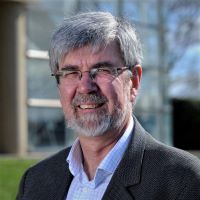 The winner of the James Cook Medal for 2022 is Emeritus Professor John A Church AO FAA FTSE FAMS FAGU of the Climate Change Research Centre, UNSW Sydney. Professor Church is the world’s pre-eminent authority on the rate of 20th century sea-level rise, with his work on quantifying historical changes having been pivotal in revolutionising our modern view of sea level rise, including the first detection of the acceleration in the rate of rise. His ground-breaking papers, published with both national and international colleagues, explain a long-standing conundrum about the causes for the observed 20th century sea-level rise. He has provided substantial improvements in estimates of ocean heat uptake, resolving discrepancies between observations and models as well as the causes. In addition, he has been an international leader in sea level assessments and projections and his work has established that anthropogenic climate forcing is responsible for the majority of observed sea level rise since 1970.
The winner of the James Cook Medal for 2022 is Emeritus Professor John A Church AO FAA FTSE FAMS FAGU of the Climate Change Research Centre, UNSW Sydney. Professor Church is the world’s pre-eminent authority on the rate of 20th century sea-level rise, with his work on quantifying historical changes having been pivotal in revolutionising our modern view of sea level rise, including the first detection of the acceleration in the rate of rise. His ground-breaking papers, published with both national and international colleagues, explain a long-standing conundrum about the causes for the observed 20th century sea-level rise. He has provided substantial improvements in estimates of ocean heat uptake, resolving discrepancies between observations and models as well as the causes. In addition, he has been an international leader in sea level assessments and projections and his work has established that anthropogenic climate forcing is responsible for the majority of observed sea level rise since 1970.
James Cook Medal 2021
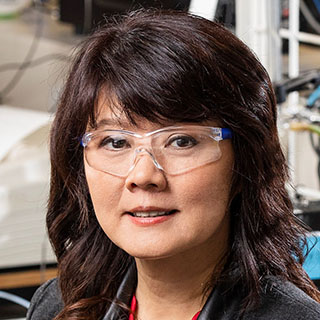 The winner of the James Cook Medal for 2021 is Professor Rose Amal AC FRSN FTSE FAA, Scientia Professor of Chemical Engineering at UNSW (Sydney). Professor Amal is an acknowledged international leader in the field of chemical engineering. Her research has changed the way in which the properties of catalysts are understood, with her scientific breakthroughs in catalysis leading to real-world applications for sustainable environment and energy applications. In particular, she is renowned for her photocatalysis breakthroughs for large-scale industrial water treatment and the generation of ‘clean hydrogen’, i.e., the production of hydrogen from water using solar energy powered by an electrolyser, including the generation of hydrogen directly from seawater. Her contributions to science and human welfare in and for the Southern Hemisphere have been extensive.
The winner of the James Cook Medal for 2021 is Professor Rose Amal AC FRSN FTSE FAA, Scientia Professor of Chemical Engineering at UNSW (Sydney). Professor Amal is an acknowledged international leader in the field of chemical engineering. Her research has changed the way in which the properties of catalysts are understood, with her scientific breakthroughs in catalysis leading to real-world applications for sustainable environment and energy applications. In particular, she is renowned for her photocatalysis breakthroughs for large-scale industrial water treatment and the generation of ‘clean hydrogen’, i.e., the production of hydrogen from water using solar energy powered by an electrolyser, including the generation of hydrogen directly from seawater. Her contributions to science and human welfare in and for the Southern Hemisphere have been extensive.
James Cook Medal 2020
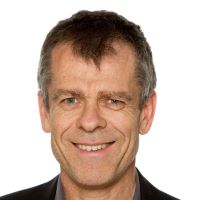 The winner of the James Cook Medal for 2020 is Scientia Professor Richard Bryant AC FASSA FAA FAHMS of UNSW (Sydney). Professor Bryant has made many seminal advances in the diagnosis, treatment, and identification of neural, genetic, and cognitive markers of post-traumatic psychopathology. His work has challenged the pre-existing notions of acute psychological response to trauma leading to major policy and practice shifts internationally in relation to how trauma survivors are managed. Professor Bryant has translated his findings into improving the mental health of communities throughout the Southern Hemisphere (as well as many trauma-affected countries in the northern hemisphere).
The winner of the James Cook Medal for 2020 is Scientia Professor Richard Bryant AC FASSA FAA FAHMS of UNSW (Sydney). Professor Bryant has made many seminal advances in the diagnosis, treatment, and identification of neural, genetic, and cognitive markers of post-traumatic psychopathology. His work has challenged the pre-existing notions of acute psychological response to trauma leading to major policy and practice shifts internationally in relation to how trauma survivors are managed. Professor Bryant has translated his findings into improving the mental health of communities throughout the Southern Hemisphere (as well as many trauma-affected countries in the northern hemisphere).
James Cook Medal 2019
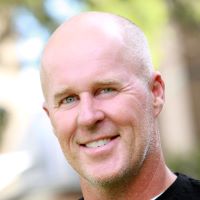 The winner of the James Cook Medal for 2019 is Scientia Professor Matthew England FRSN FAA of the UNSW Climate Change Research Centre. Professor England is recognised as one of the world’s foremost experts in how the world’s oceans control regional and global climate on time scales from seasons to millennia. His field of research spans physical oceanography and climate dynamics, where he has written seminal papers on Southern Ocean water-mass formation, Antarctic ocean-atmosphere-ice interactions, climate modes of variability, and ocean ventilation processes. Importantly, in the context of the James Cook Medal, England has a sustained track record of outstanding research and discovery in areas that make an impact on human welfare, both here in Australia and across other regions of the Southern Hemisphere, including improved predictions of rainfall and climate variability, discoveries of the oceanic drivers of severe drought and flooding rains, and quantification of the impacts of climate change and the fate of ocean pollution.
The winner of the James Cook Medal for 2019 is Scientia Professor Matthew England FRSN FAA of the UNSW Climate Change Research Centre. Professor England is recognised as one of the world’s foremost experts in how the world’s oceans control regional and global climate on time scales from seasons to millennia. His field of research spans physical oceanography and climate dynamics, where he has written seminal papers on Southern Ocean water-mass formation, Antarctic ocean-atmosphere-ice interactions, climate modes of variability, and ocean ventilation processes. Importantly, in the context of the James Cook Medal, England has a sustained track record of outstanding research and discovery in areas that make an impact on human welfare, both here in Australia and across other regions of the Southern Hemisphere, including improved predictions of rainfall and climate variability, discoveries of the oceanic drivers of severe drought and flooding rains, and quantification of the impacts of climate change and the fate of ocean pollution.
James Cook Medal 2018
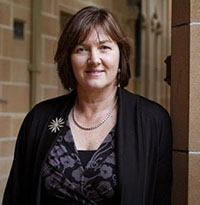 The winner of the James Cook Medal for 2018 is Professor Elizabeth Elliott AM FAHMS. She is Professor at the University of Sydney Clinical School and a practising paediatrician. This prize recognises Professor Elliott’s significant contributions to improving the health and quality of life, as well as human rights, of ill and disadvantaged children in Australia, the Asia Pacific and beyond. Her translational research has been at the forefront of advances in evidence-based paediatrics, rare diseases, gastroenterology and foetal alcohol spectrum disorder.
The winner of the James Cook Medal for 2018 is Professor Elizabeth Elliott AM FAHMS. She is Professor at the University of Sydney Clinical School and a practising paediatrician. This prize recognises Professor Elliott’s significant contributions to improving the health and quality of life, as well as human rights, of ill and disadvantaged children in Australia, the Asia Pacific and beyond. Her translational research has been at the forefront of advances in evidence-based paediatrics, rare diseases, gastroenterology and foetal alcohol spectrum disorder.
List of Past Recipients of the James Cook Medal
| Year | Recipient |
| 1947 | The Rt. Hon. J.C. Smuts |
| 1948 | B.A. Houssay |
| 1950 | Sir Neil H. Fairley |
| 1951 | Sir Norman McAlister Gregg |
| 1952 | W.L. Waterhouse |
| 1953 | Sir David Rivett |
| 1954 | Sir Frank M. Burnet |
| 1955 | A.P. Elkin |
| 1956 | Sir Ian Clunies Ross |
| 1959 | Albert Schweitzer |
| 1961 | Sir John Eccles |
| 1964 | M.R. Lemberg |
| 1965 | John Gunther |
| 1966 | Sir William Hudson |
| 1969 | Lord Casey of Berwick |
| 1974 | Sir Marcus L. Oliphant |
| 1975 | A. Walsh |
| 1977 | I.A. Watson |
| 1978 | Sir Lawrence J. Wackett |
| 1979 | Robert J. Walsh |
| 1984 | Ronald Lawrie Huckstep |
| 1985 | Donald Metcalf |
| 1987 | Phillip Garth Law |
| 1991 | Graeme Milbourne Clark |
| 1994 | Sir Gustav Nossal |
| 2013 | Brien Holden |
| 2014 | Martin Green |
| 2016 | David Cooper |
| 2017 | Gordon Parker |
| 2018 | Elizabeth Elliott |
| 2019 | Matthew England |
| 2020 | Richard Bryant |
| 2021 | Rose Amal |
| 2022 | John A. Church |
A brief citation and photograph for each recipient is available here.
The RSNSW History and Philosophy of Science Medal
The Society’s History and Philosophy of Science Medal is awarded each year to recognise outstanding achievement in the History and Philosophy of Science with preference being given to the study of ideas, institutions, and individuals of significance to the practice of the natural sciences in Australia.
The Royal Society of NSW History and Philosophy of Science Medal was established in 2013 to recognize outstanding achievement in the History and Philosophy of Science. It was first awarded in 2014.
RSNSW History and Philosophy of Science Medal 2022
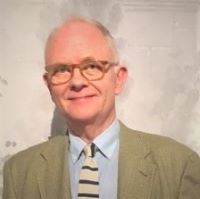 The Medal for 2021 has been awarded to Emeritus Professor Stephen Gaukroger FRSN FAHA FRHistS FRSA of the School of History and Philosophy of Science at the University of Sydney. Professor Gaukroger is one of the world’s leading historians of science and philosophy. Educated at the University of London and the University of Cambridge, he has held positions at Cambridge, Melbourne, and Sydney, as well as visiting professorships at Oxford, London, Aberdeen, and the École normale supérieure – Paris Sciences et Lettres. Now Emeritus Professor of History of Philosophy and History of Science at the University of Sydney, he is the author of sixteen books, including an internationally renowned intellectual biography of Descartes (1995). His work has been translated in Arabic, Chinese, French, German, Italian, Portuguese, and Russian. His major work is the 4-volume study of science and the shaping of modernity: The Emergence of a Scientific Culture, 1210-1685 (2006); The Collapse of Mechanism and the Rise of Sensibility: 1680-1760 (2010); The Natural and the Human, 1739-1841 (2016); Civilization and the Culture of Science, 1795-1935 (2020).
The Medal for 2021 has been awarded to Emeritus Professor Stephen Gaukroger FRSN FAHA FRHistS FRSA of the School of History and Philosophy of Science at the University of Sydney. Professor Gaukroger is one of the world’s leading historians of science and philosophy. Educated at the University of London and the University of Cambridge, he has held positions at Cambridge, Melbourne, and Sydney, as well as visiting professorships at Oxford, London, Aberdeen, and the École normale supérieure – Paris Sciences et Lettres. Now Emeritus Professor of History of Philosophy and History of Science at the University of Sydney, he is the author of sixteen books, including an internationally renowned intellectual biography of Descartes (1995). His work has been translated in Arabic, Chinese, French, German, Italian, Portuguese, and Russian. His major work is the 4-volume study of science and the shaping of modernity: The Emergence of a Scientific Culture, 1210-1685 (2006); The Collapse of Mechanism and the Rise of Sensibility: 1680-1760 (2010); The Natural and the Human, 1739-1841 (2016); Civilization and the Culture of Science, 1795-1935 (2020).
RSNSW History and Philosophy of Science Medal 2021
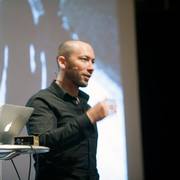 The Medal for 2021 has been awarded to Professor Dean Rickles, Professor of History and Philosophy of Modern Physics at the University of Sydney. Professor Rickles has made seminal contributions to both the history and the philosophy of modern physics, creating two-way traffic from conceptual and philosophical issues to historical ones. His work has been used and praised by philosophers, historians, and physicists alike. In particular, he has been a central figure in the emerging field of history and philosophy of quantum gravity (the as yet unknown theory that would treat our two great fundamental theories of physics, general relativity and quantum theory, in a single framework), and has driven much of the current research landscape. He has been responsible for many firsts, including the first detailed histories of string theory, praised by its chief architect (John Schwarz), and of quantum gravity, and the first philosophical papers on dualities and loop quantum gravity.
The Medal for 2021 has been awarded to Professor Dean Rickles, Professor of History and Philosophy of Modern Physics at the University of Sydney. Professor Rickles has made seminal contributions to both the history and the philosophy of modern physics, creating two-way traffic from conceptual and philosophical issues to historical ones. His work has been used and praised by philosophers, historians, and physicists alike. In particular, he has been a central figure in the emerging field of history and philosophy of quantum gravity (the as yet unknown theory that would treat our two great fundamental theories of physics, general relativity and quantum theory, in a single framework), and has driven much of the current research landscape. He has been responsible for many firsts, including the first detailed histories of string theory, praised by its chief architect (John Schwarz), and of quantum gravity, and the first philosophical papers on dualities and loop quantum gravity.
RSNSW History and Philosophy of Science Medal 2020
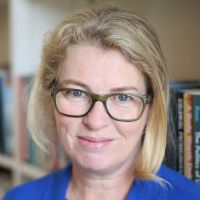 The Medal for 2020 has been awarded to Professor Alison Bashford FRSN FAHA FBA FRHistS, an ARC Laureate Fellow from the Faculty of Arts and Social Sciences at UNSW (Sydney). Professor Bashford is one of Australia's most eminent historians, recognised internationally for her ground-breaking and transformative historical studies of the biomedical and environmental sciences. Her scholarly distinction is recognised by fellowships of both Australian and British academies. Professor Bashford has greatly enlarged and raised our understanding of past conceptions of race, population and place in Australia and the world. She has brought the history of the human and environmental sciences into the scope of world history. She has written five acclaimed books and numerous other published works in which she reveals connections of science and medicine with national projects and global ambitions. Further, her extensive and various studies have reoriented the history of science toward the southern hemisphere and the Pacific, showing us how natural knowledge has been assembled in Australia and the region.
The Medal for 2020 has been awarded to Professor Alison Bashford FRSN FAHA FBA FRHistS, an ARC Laureate Fellow from the Faculty of Arts and Social Sciences at UNSW (Sydney). Professor Bashford is one of Australia's most eminent historians, recognised internationally for her ground-breaking and transformative historical studies of the biomedical and environmental sciences. Her scholarly distinction is recognised by fellowships of both Australian and British academies. Professor Bashford has greatly enlarged and raised our understanding of past conceptions of race, population and place in Australia and the world. She has brought the history of the human and environmental sciences into the scope of world history. She has written five acclaimed books and numerous other published works in which she reveals connections of science and medicine with national projects and global ambitions. Further, her extensive and various studies have reoriented the history of science toward the southern hemisphere and the Pacific, showing us how natural knowledge has been assembled in Australia and the region.
RSNSW History and Philosophy of Science Medal 2019
The Medal for 2019 has been awarded to Professor Evelleen Richards, an Honorary Professor in the School of History and Philosophy of Science at the University of Sydney. Professor Richards is an Australian scholar of outstanding achievement and international standing. Her work is particularly notable in that she has made significant contributions to answering key questions in the history of science, especially in the history and historiography of evolutionary theory, as well as to the study of contemporary research policy in science and medicine. Her studies in the contextual history of evolutionary biology are internationally regarded as offering a major advance in the understanding and interpretation of the scientific past. Her recent book on the genesis and reception of Charles Darwin’s concept of sexual selection, “Darwin and the Making of Sexual Selection” has generated substantial international impact, being awarded the 2018 Suzanne J Levinson Prize of the US History of Science Society. Equally remarkable during her career has been her engagement with the history and socio-politics of medicine and their policy implications, demonstrating the importance of historical and sociological analyses in illuminating medical practices and policy, particularly in relation to clinical trials and drug regulation.
RSNSW History and Philosophy of Science Medal 2018
The Medal for 2018 was awarded to Professor Paul Griffiths FAHA FRSN of the Department of Psychology at the University of Sydney. Professor Griffiths is renowned for his work in the philosophy of biology, in particular for his distinctive theoretical and methodological contributions to the philosophy of biological development, ranging across genetics, genomics and evolutionary biology. He also made significant contributions to the philosophy of cognitive science, and most recently, to the philosophy of medicine.
List of Past Recipients of the RSNSW History and Philosophy of Science Medal
Year Medallist
2014 Ann Moyal
2015 Professor Warwick Anderson
2016 Professor Roy MacLeod
2017 Professor Peter Godfrey-Smith
2018 Professor Paul Griffiths
2019 Professor Evelleen Richards
2020 Professor Alison Bashford
2021 Professor Dean Rickles
2022 Emeritus Professor Stephen Gaukroger
The Clarke Memorial Lecture
The Clark Memorial Lecture is delivered by the most recent winner of The Clarke Medal.
The Medal and Lecture were founded in memory of the Reverend William Branwhite Clarke, one of the fathers of the Royal Society of New South Wales. When the Philosophical Society of New South Wales was reorganized and converted into the Royal Society of New South Wales in 1866, the Rev. W.B. Clarke, because of his acknowledged eminence as a geologist and his scientific services to the Colony, was elected a joint Vice-President, a position which he held until his death on 16 June 1878. This meant that he was effectively the organizer of the Society, as at that time the Governor was ex-officio President. Some Governors did take a specific interest, attending meetings and taking part in discussions.
When funds permitted the Clarke Memorial Lectures in geology were commenced, but at first they were not given regularly. The first Lecture was delivered on 24 September 1903 by Professor T.W. Edgeworth David, his address being most appropriately titled "The Life and Work of the Rev. W.B. Clarke". In October 1906 a series of lectures was delivered by Professor E.W. Skeats of Melbourne University, one on "The Volcanoes of Victoria" and two on "The Origin of Dolomite". There were five Lectures during 1907, and one each in 1918 and 1919.
In 1935 a Clarke Memorial Fund Permanent Advisory Committee was appointed by the Council of the Society, and, on its recommendations, Dr. W.G. Woolnough was asked to deliver a Clarke Memorial Lecture. This lecture, titled "The Aeroplane in the Service of Geology", given on 20 March 1936 in Science House, Sydney, was the first for 19 years and the first to be published in the Journal and Proceedings of the Society, thereby establishing a custom followed today.
Clarke Memorial Lectures were delivered annually from 1936 to 1951, and since 1951 were delivered approximately every second year. Since 2018, with the Clarke Memorial Lecture now aligned with the awarding of the Clarke Medal, the Clarke Lecture has been delivered annually.
| Year & Lecturer | Year & Lecturer |
| 1903 T.W.E. David 1906 E.W. Skeats (2 lectures) 1907 T.W.E. David (2 lectures) 1907 W.G. Woolnough 1907 E.F. Pittman 1907 W.S. Dun 1918 R.J.A. Berry 1919 T.W.E. David 1936 W.G. Woolnough 1937 H.C. Richards 1938 C.T. Madigan 1939 Sir John S. Flett 1940 E.J. Kenny 1941 C.A. Süssmilch 1942 E.C. Andrews 1943 H.G. Raggatt 1944 W.H. Bryan 1945 E.C. Hills 1946 L.A. Cotton 1947 H.S. Summers 1948 Sir Douglas Mawson 1949 W.R. Browne 1950 F.W. Whitehouse 1951 A.B. Edwards 1953 M.F. Glaessner 1955 R.O. Chalmers 1957 A.H. Voisey 1959 D.E. Thomas 1961 J.A. Dulhunty |
1965 A.A. Öpik 1967 S.W. Carey 1969 A.E. Ringwood 1971 D.H. Hill 1973 K. Rankama 1975 K.S.W. Campbe1l 1977 J.F.G. Wilkinson 1979 G.H. Taylor 1981 R.W.R. Rutland 1983 R.H. Vernon 1985 R.L. Stanton 1987 J.J. Veevers 1989 E. Scheibner 1991 B. Webby 1993 B.W. Chappell 1995 R. Taylor 1997 R.W. Johnson (not published) 1999 R. Arculus 2001 G. Packham 2007 D.F. Branagan and R.M. MacLeod 2009 K. Lambeck 2011 J.F. Dewey 2015 W. Griffin 2018 E. Johnston 2019 D. Müller 2020 M. Leishman 2021 R. J. Aitken 2022 A. Baker |
The Edgeworth David Medal
The Edgeworth David Medal is awarded for the most meritorious contributions to knowledge and society in Australia or its territories, conducted mainly in New South Wales by an individual who is from 5–15 years post-PhD or equivalent on 1 January of the year of the award.
The medal is named after the pioneering geologist and longstanding supporter of the Society, Sir Edgeworth David FRS, who wrote the first comprehensive record of the geology of Australia. In September 1942, Henry Ferdinand Halloran, who had joined the Society in 1892, decided to celebrate his jubilee as a member by making a donation to the Society. In May 1943 the Council decided to use some of Henry Halloran’s gift to establish the Edgeworth David Medal, to be awarded annually to scientists under the age of 35 years.
In October 1943, the sculptor Lyndon Dadswell was commissioned to draw up a design for the Edgeworth David Medal. About three years elapsed before Dadswell finalised the design. The Council of the Society had decided at an early stage that a portrait of the late Professor Sir Edgeworth David would appear on the obverse side of the medal. Members of Council were not satisfied that the first plaster cast of the medal was a good likeness of Sir Edgeworth and a modified design was finally accepted by Council in March 1947.
The first award of the Edgeworth David Medal was made at the Annual General Meeting of the Society in April 1949.
The Edgeworth David Medal 2022
 The Edgeworth David Medal for 2022 has been awarded to Dr Tim S Doherty, an ARC DECRA Fellow in the School of Life and Environmental Sciences at the University of Sydney. Dr Doherty has made extraordinary contributions in the fields of predator-prey dynamics, movement ecology and fire ecology, emerging as a pre-eminent scientist of his generation in developing these fields and in exploring how each is influenced by human modification of the environment. Dr Doherty’s transformative insights have been achieved by combining field experiments with novel theoretical frameworks and global syntheses. Key contributions include revealing that invasive predators have contributed to more than 50% of bird, mammal, and reptile extinctions globally, and conducting vital applied field research on fire and invasive species that informs conservation policy and management.
The Edgeworth David Medal for 2022 has been awarded to Dr Tim S Doherty, an ARC DECRA Fellow in the School of Life and Environmental Sciences at the University of Sydney. Dr Doherty has made extraordinary contributions in the fields of predator-prey dynamics, movement ecology and fire ecology, emerging as a pre-eminent scientist of his generation in developing these fields and in exploring how each is influenced by human modification of the environment. Dr Doherty’s transformative insights have been achieved by combining field experiments with novel theoretical frameworks and global syntheses. Key contributions include revealing that invasive predators have contributed to more than 50% of bird, mammal, and reptile extinctions globally, and conducting vital applied field research on fire and invasive species that informs conservation policy and management.
The Edgeworth David Medal 2021
 The Edgeworth David Medal for 2021 has been awarded to Dr Lining Arnold Ju, an ARC DECRA Fellow in the Faulty of Engineering at the University of Sydney. Dr Ju employs innovative and cutting-edge research in mechanical engineering and biomechanics to open new avenues for the diagnosis, monitoring, and treatment of blood clotting diseases. In just 8 years since his PhD award and under 35 years of age, he has been an ARC DECRA Fellow and a Heart Foundation Future Leader Fellow and has won awards such as the;MIT TR35 Innovator, the Australian Museum Eureka Prize and NSW Young Tall Poppy. His academic standing is on a steep upward trajectory nationally and internationally. He is now spearheading his own Cardiovascular Biomechanics Lab for organ-on-chip blood clot assessment and the development of future cardiovascular point-of-care tests and telehealth microdevices.
The Edgeworth David Medal for 2021 has been awarded to Dr Lining Arnold Ju, an ARC DECRA Fellow in the Faulty of Engineering at the University of Sydney. Dr Ju employs innovative and cutting-edge research in mechanical engineering and biomechanics to open new avenues for the diagnosis, monitoring, and treatment of blood clotting diseases. In just 8 years since his PhD award and under 35 years of age, he has been an ARC DECRA Fellow and a Heart Foundation Future Leader Fellow and has won awards such as the;MIT TR35 Innovator, the Australian Museum Eureka Prize and NSW Young Tall Poppy. His academic standing is on a steep upward trajectory nationally and internationally. He is now spearheading his own Cardiovascular Biomechanics Lab for organ-on-chip blood clot assessment and the development of future cardiovascular point-of-care tests and telehealth microdevices.
The Edgeworth David Medal 2020
 The Edgeworth David Medal for 2020 has been awarded to Associate Professor Brett Hallam of the School of Photovoltaic and Renewable Energy Engineering at UNSW (Sydney). In less than six years from completion of his PhD, Scientia Fellow Brett Hallam has established himself as a national and international leader in the highly competitive field of crystalline silicon photovoltaics, particularly in the areas of light induced degradation, hydrogen passivation and defect engineering. Although he has made a major impact on photovoltaics globally, this is in addition to his profile and leadership in crystalline silicon photovoltaics in Australia. Professor Hallam’s research addresses one of the key challenges in sustainability, that is, access to clean electricity. His work on hydrogen passivation to avoid light induced degradation of solar cells means that the cost of photovoltaics can be reduced greatly, increasing the competitiveness of this form of electricity compared with that generated by fossil fuels.
The Edgeworth David Medal for 2020 has been awarded to Associate Professor Brett Hallam of the School of Photovoltaic and Renewable Energy Engineering at UNSW (Sydney). In less than six years from completion of his PhD, Scientia Fellow Brett Hallam has established himself as a national and international leader in the highly competitive field of crystalline silicon photovoltaics, particularly in the areas of light induced degradation, hydrogen passivation and defect engineering. Although he has made a major impact on photovoltaics globally, this is in addition to his profile and leadership in crystalline silicon photovoltaics in Australia. Professor Hallam’s research addresses one of the key challenges in sustainability, that is, access to clean electricity. His work on hydrogen passivation to avoid light induced degradation of solar cells means that the cost of photovoltaics can be reduced greatly, increasing the competitiveness of this form of electricity compared with that generated by fossil fuels.
The Edgeworth David Medal 2019
The Edgeworth David Medal for 2019 has been awarded to Professor Si Ming Man, of the John Curtin School of Medical Research at the Australian National University. Professor Si Ming Man is an outstanding young researcher in the field of innate immunology, attaining a full professorship only six years after his PhD graduation. Six of his recent papers are recognised as “highly cited”, being in the top 1% of the field. His research has identified a class of disease-fighting “killer” proteins, produced by the cell, which can directly attack bacteria, causing these pathogens to die and release signals that can rapidly trigger activation of the immune system. Further studies have shown that immune receptors have critical roles in preventing gut inflammation and the development of colorectal (bowel) cancer, while most recently he has discovered that toxins from foodborne bacteria can be detected and blockaded by immune receptors to prevent sepsis.
The Edgeworth David Medal 2018
The Edgeworth David Medal for 2018 was awarded to Associate Professor Elizabeth J. New. She is an inorganic chemist working in the field of molecular imaging and medical sensors. Associate Professor New’s research has progressed the field in several ways, including synthesising new chemical tools that can sense chemical environments, promoting a translational approach to the development of new chemical sensors and establishing generalised methods that are now widely used to improve and evaluate potential cellular probes.
List of Past Recipients of the Edgeworth David Medal
| Year | Recipient | Discipline |
| 1948 | R.G. Giovanelli & | Astrophysics |
| E. Ritchie | Organic Chemistry | |
| 1949 | T.B. Kiely | Plant Pathology |
| 1950 | R.M. Berndt & | Anthropology |
| Catherine H. Berndt | Anthropology | |
| 1951 | J.G. Bolton | Radio Astronomy |
| 1952 | A.B. Wardrop | Botany |
| 1954 | E.S. Barnes | Mathematics |
| 1955 | H.B.S. Womersley | Botany |
| 1956 | J.M. Cowley | Chemical Physics |
| 1957 | J.M. Cowley & | Chemical Physics |
| J.P. Wild | Radio Astronomy | |
| 1958 | P.I. Korner | Physiology |
| 1960 | R.D. Brown | Chemistry |
| 1961 | R.O. Slatyer | Climatology |
| 1962 | R.F. Isbell | Soil Science |
| 1963 | W.H. Fletcher | Physics |
| 1964 | M.E. Holman | Physiology |
| 1965 | J.L. Dillon | Agricultural Economics |
| 1966 | R.I. Tanner | Mechanical Engineering |
| 1967 | D.H. Green & | Geology |
| W.J. Peacock | Botany | |
| 1968 | R.M. May | Physics |
| 1969 | B.W. Ninham | Physics |
| 1970 | D.A. Buckingham | Inorganic Chemistry |
| 1971 | W.F. Budd | Glaciology |
| 1972 | D.H. Napper & | Physical Chemistry |
| J. Stone | Physiology | |
| 1973 | C.B. Osmond | Plant Biology |
| 1974 | A.W. Snyder | Physics |
| 1975 | F.J. Ballard | Biochemistry |
| 1976 | R.H. Street | Mathematics |
| 1977 | R.A. Antonia | Mechanical Engineering |
| 1978 | JT.W. Cole & | Astronomy |
| M.G. Clark | Physiology | |
| 1979 | G.C. Goodwin | Electrical Engineering |
| 1980 | Michael Anthony Etheridge | Geology |
| 1981 | Martin Andrew Green | Applied Physics |
| 1982 | Nhan Phan-Thien | Mechanics |
| 1983 | Denis Wakefield | Ocular Immunology |
| 1984 | Alan James Husband | Pathology |
| 1985 | Simon Charles Gandevia & | Clinical Neurophysiology |
| Brian James Morris | Molecular Biology | |
| 1986 | Leslie David Field & | Chemistry |
| Peter Gavin Hall | Statistics | |
| 1987 | Andrew Cockburn | Zoology |
| 1988 | Peter Andrew Lay | Inorganic Chemistry |
| 1989 | Trevor William Hambley | Chemistry |
| 1990 | Timothy Fridjof Flannery | Taxonomy & Phylogeny - Macropodidea |
| 1991 | Mark Harvey | Taxonomy - Invertebrates |
| 1992 | Peter James Goadsby & | Neurophysiology |
| Keith Alexander Nugent | Optics | |
| 1993 | John Skerritt | Agriculture (Genetics) |
| 1994 | Richard Hume Middleton | Electrical Engineering |
| 1995 | Anthony Bruce Murphy | Physics |
| 1996 | Peter Alexander Robinson | Physics |
| 1997 | Albert Zomaya | Mathematics |
| 1999 | Dr Merlin Crossley | Molecular Biology |
| 2000 | Dr Michael Coon Yoong Lee | Zoology |
| 2001 | Dr Samantha Richardson | Evolution |
| 2002 | Professor Marcella Bilek | Physics |
| 2003 | Dr Stuart Robert Batten | Chemistry |
| 2004 | Dr Cameron Kepert | Chemistry |
| 2005 | A/Prof Christopher Barner-Kowollik | Chemistry |
| 2006 | Professor Barry Brook | Environmental Science |
| 2007 | A/Prof Stuart Wyithe | Astrophysics |
| 2008 | Dr Adam Micolich | Physics |
| 2009 | A/Prof Nagarajan Valanoor | Materials Science |
| 2010 | A/Prof Angela Moles | Botany |
| 2011 | Dr Trent Woodruff | Pharmacology |
| 2012 | Dr Joanne Whittaker | Geophysics |
| 2012 | A/Prof David Wilson | Mathematics and Public Health |
| 2013 | A/Prof David Wilson | Epidemiology |
| 2014 | A/Prof Richard Payne | Chemistry |
| 2015 | A/Prof Simon Ho | Biology and Evolution |
| 2016 | Dr. Muireann Irish | Neuroscience |
| 2017 | Dr Angela Nickerson | Psychology |
| 2018 | Associate Professor Elizabeth J. New | Chemistry |
| 2019 | Professor Si Ming Man | Immunology |
| 2020 | Associate Professor Brett Hallam | Photovoltaic Engineering |
| 2021 | Dr Lining Arnold Ju | Mechanical Engineering / Biomechanics |
| 2022 | Dr Tim S Doherty | Ecology / Predator-Prey Dynamics |
The Clarke Medal
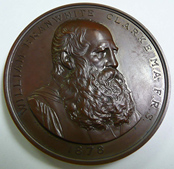 The Clarke Medal is awarded each year for distinguished research in the natural sciences conducted in Australia and its territories. The recipient may be resident in Australia or elsewhere. The fields of geology, botany and zoology are considered in rotation. For 2022, the medal was awarded in Geology.
The Clarke Medal is awarded each year for distinguished research in the natural sciences conducted in Australia and its territories. The recipient may be resident in Australia or elsewhere. The fields of geology, botany and zoology are considered in rotation. For 2022, the medal was awarded in Geology.
The Clarke Medal and Clarke Memorial Lecture were founded in memory of the Reverend William Branwhite Clarke, one of the fathers of the Royal Society of New South Wales. When the Philosophical Society of New South Wales was reorganized and converted into the Royal Society of New South Wales in 1866, the Rev. W.B. Clarke, because of his acknowledged eminence as a geologist and his scientific services to the Colony, was elected a joint Vice-President, a position which he held until his death on 16th June 1878. This meant that he was effectively the organizer of the Society, as at that time the Governor was ex-officio President. Some Governors did take a specific interest, attending meetings and taking part in discussions.
Shortly after Clarke’s death a memorial fund was opened at a meeting of the Society on 3 July 1878. It was intended that the memorial take the form of annual lectures on geology, free to the public (to be known as Clarke Memorial Lectures), and a gold medal to be presented periodically for distinguished contributions to Australian geology (the Clarke Medal). However, contributions to the Clarke Memorial Fund did not immediately rise to the expectations of the Council, and it was not until October 1879 that it was possible to proceed with one of the schemes, namely, the Clarke Medal.
The Medal was to be awarded “for meritorious contributions to Geology, Mineralogy and Natural History of Australasia, to be open to men of science, whether resident in Australasia or elsewhere”. The Council decided that the Medal be made of bronze instead of gold, as originally intended, and a pair of dies was ordered from J.S. & A.B. Wyon of London at a cost of 100 guineas. The obverse side of the Medal bears a portrait of the Rev. W.B. Clarke looking to the left, beautifully engraved, as was all the work done by J.S. & A.B. Wyon at that time.
The Wyon family were practising medallists for a great many years and five in succession held the appointment of Medallist to the reigning Sovereign. At the Society’s Annual General Meeting on 12 May 1880 the names of the first recipients of the Clarke Medal were announced. The Medal for 1878 was to be awarded to Professor Richard Owen of the British Museum, famous for his studies of Australian vertebrate fossils; for 1879 to Mr. George Bentham of the Royal Gardens Kew, who made a major contribution to the study of the Australian flora; and for 1880 to Professor T.H. Huxley of the Royal School of Mines, London, for his valuable contributions to the knowledge of the natural history of Australia.
Over 50 Clarke Medals have been awarded. The Award is now considered annually for distinguished work in the Natural Sciences (geology, botany and zoology) done in, or on, the Australian Commonwealth and its territories. The disciplines are considered in rotation so that zoologists, for example, are considered for the award every three years. It remains a highly prized award among Australian scientists.
(The above notes were compiled by William Griffin, using notes on the history and purpose of the awards supplied by Dr David F. Branagan.)
The Clarke Medal 2022
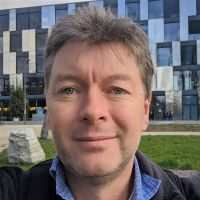 The Clarke Medal for 2022, in the field of Geology, has been awarded to Professor Andrew (Andy) Baker FAGU, of the School of Biological, Earth & Environmental Sciences at UNSW Sydney. Professor Baker is an international authority in cave science, hydrology and geochemistry, especially as it pertains to our understanding of karst — complex underground systems formed from dissolution of soluble rocks, characterised by sinkholes, caves and speleothems (e.g., stalagmites). Having led over AU$10M in external projects in NSW since 2010, he has also published more than 260 internationally refereed papers, including highly-cited publications in Nature, Nature Communications, and Science.
The Clarke Medal for 2022, in the field of Geology, has been awarded to Professor Andrew (Andy) Baker FAGU, of the School of Biological, Earth & Environmental Sciences at UNSW Sydney. Professor Baker is an international authority in cave science, hydrology and geochemistry, especially as it pertains to our understanding of karst — complex underground systems formed from dissolution of soluble rocks, characterised by sinkholes, caves and speleothems (e.g., stalagmites). Having led over AU$10M in external projects in NSW since 2010, he has also published more than 260 internationally refereed papers, including highly-cited publications in Nature, Nature Communications, and Science.
The Clarke Medal 2021
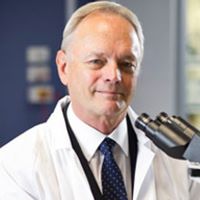 The Clarke Medal for 2021, in the field of Zoology, has been awarded to Distinguished Professor Emeritus John Aitken FRSN FAA FAHMS FRSE of the College of Engineering, Science and Environment at the University of Newcastle. Professor Aitken is a global leader in reproductive biology and the 2012 NSW Scientist of the Year. Based at the University of Newcastle, he is President of the International Society of Andrology, Director of the Priority Research Centre in Reproductive Science and Professor of Biological Sciences. Professor Aitken heads up a research team that is making significant inroads into human and animal reproductive issues. His research achievements include identifying a major cause of male infertility that has resulted in new methods of therapeutic intervention, and the development of a contraceptive that would prevent pregnancy and inhibit the spread of sexually transmitted diseases.
The Clarke Medal for 2021, in the field of Zoology, has been awarded to Distinguished Professor Emeritus John Aitken FRSN FAA FAHMS FRSE of the College of Engineering, Science and Environment at the University of Newcastle. Professor Aitken is a global leader in reproductive biology and the 2012 NSW Scientist of the Year. Based at the University of Newcastle, he is President of the International Society of Andrology, Director of the Priority Research Centre in Reproductive Science and Professor of Biological Sciences. Professor Aitken heads up a research team that is making significant inroads into human and animal reproductive issues. His research achievements include identifying a major cause of male infertility that has resulted in new methods of therapeutic intervention, and the development of a contraceptive that would prevent pregnancy and inhibit the spread of sexually transmitted diseases.
Professor Aitken currently has an active program of research to develop non-surgical methods of sterilisation for domestic and feral animals. Nationwide, the damage done by vertebrate pests to Australian biodiversity and agricultural productivity amounts to $1 billion per annum. In response to this need, Professor Aitken’s research group has developed a technology for the non-surgical sterilization of mammalian species that opens up a market worth billions of dollars per annum.
The Clarke Medal 2020
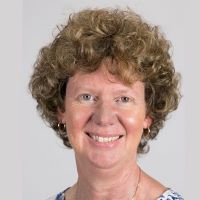 The Clarke Medal 2020, in the field of Botany, has been awarded to Distinguished Professor Michelle Leishman of the Department of Biological Sciences at Macquarie University. Professor Leishman is internationally recognised for her work in plant ecology. In particular, her studies are directed towards understanding the success of invasive plant pathogens, vegetation responses and adaptation to climate change, plant conservation, and facilitating resilient urban green spaces. She has a number of active research programs which include development of a database for greening urban space, studying invasive plants and pathogens and climate vegetation response and adaptation to global climate change.
The Clarke Medal 2020, in the field of Botany, has been awarded to Distinguished Professor Michelle Leishman of the Department of Biological Sciences at Macquarie University. Professor Leishman is internationally recognised for her work in plant ecology. In particular, her studies are directed towards understanding the success of invasive plant pathogens, vegetation responses and adaptation to climate change, plant conservation, and facilitating resilient urban green spaces. She has a number of active research programs which include development of a database for greening urban space, studying invasive plants and pathogens and climate vegetation response and adaptation to global climate change.
The Clarke Medal 2019
The Clarke Medal 2019, in the field of Geology, has been awarded to Professor Dietmar Müller of the School of Geosciences at the University of Sydney. Professor Müller is internationally renowned for discoveries that have transformed our fundamental understanding of the Earth’s evolution, environments and geological resources. Many of these discoveries were made possible only through Müller’s international research efforts in building a Virtual Earth Laboratory to “see” deep into the Earth in four dimensions (space and time), opening up the Earth’s dynamic history going back 200 million years. His scientific discoveries are outstanding, with contributions to the field including age and tectonic evolution of the ocean basins, earthquake hazard mapping, Australia’s intraplate stress through time, sea floor image analysis, the evolutions of continental basins and margins, and linking plate tectonics and mantle convection to Australia’s surface topography through time.
The Clarke Medal 2018
The Clarke Medal 2018 in the field of Zoology was awarded to Professor Emma Johnston AO FRSN, Dean of Science at UNSW Sydney. Professor Johnston is widely regarded for her exceptional contributions of our understanding of community ecology of marine animals. She applied the conceptual underpinnings of ecology to investigations of the most important contemporary drivers of ecosystem dynamics — human activities. By applying ecological principles to the study of human impacts on marine animals, Professor Johnston has created a highly original programme of research that not only progresses our fundamental knowledge in ecology, but also directly enables significant improvements in the management of marine systems.
List of Past Recipients of the Clarke Medal
| Year & Recipient | Year & Recipient |
|---|---|
|
1878 Professor Sir Richard Owen |
1959 T. Iredale (Zoology) 1960 A.B. Edwards (Geology) 1961 C.A. Gardner (Botany) 1962 H. Waring (Zoology) 1963 G.A. Joplin (Geology) 1964 J.W. Vickery (Botany) 1965 M.J. Mackerras (Zoology) 1966 D. Hill (Geology) 1967 S. Smith White (Botany) 1968 H.G. Andrewartha (Zoology) 1969 S. W. Carey (Geology) 1970 G. Whitley (Zoology) 1971 N.T. Burbridge (Botany) 1972 H. King (Geology) 1973 M.D. Hatch (Botany) 1974 C.H. Tyndale-Biscoe 1975 J.N. Jennings (Geography) 1976 Lilian R. Fraser 1977 A. Trendall (Geology) 1978 D.T. Anderson 1979 L.A.S. Johnson 1981 W. Stephenson 1982 N.C.W. Beadle 1983 K.A.W. Crook (Geology) 1984 Michael Archer (Palaeontology) 1985 H.B.S. Womersley 1986 David J. Groves (Geology) 1987 Anthony James Underwood 1988 Barry Garth Rolfe 1989 John Roberts (Geology) 1990 Barrie Gillen Molyneux Jamieson (Zoology) 1991 Shirley Winifred Jeffrey (Biology/Botany) 1992 Alfred Edward Ringwood (Geology) 1993 Gordon C. Grigg (Zoology) 1994 Joint award: Craig Anthony Atkins & Barbara Gillian Briggs (Botany) 1995 Christopher McAuley Powell (Geology) 1996 Klaus Rohde (Zoology) 1997 Charles Barry Osmond (Botany) 1998 Richard Limon Stanton AO (Geology) 1999 Richard Shine (Zoology) 2000 Sarah Elizabeth Smith (Agriculture) 2001 Gordon H. Packham (Geology) 2002 Professor Robert Hill (Botany) 2003 Professor Lesley Joy Rogers (Zoology) 2004 Professor Ian Plimer (Geology) 2005 Professor Mark Westoby (Botany) 2006 Professor Anthony Hulbert (Zoology) 2007 Professor Suzanne O'Reilly (Geology) 2008 Professor Bradley Potts (Botany) 2009 Dr Winston Ponder (Zoology) 2010 Professor Kenton Campbell (Geology) 2011 Professor Byron Lamont (Botany) 2012 Professor Marilyn Renfree (Zoology) 2013 Professor William Griffin (Geology) 2014 Professor Robert Park (Botany) 2015 Prof. Christopher Dickman (Zoology) 2016 Professor Simon P. Turner (Geology) 2017 Professor David Keith (Botany) 2018 Professor Emma Johnston AO (Zoology) 2019 Professor Dietmar Müller (Geology) 2020 Professor Michelle Leishman (Botany) 2021 Professor Robert John Aitken (Zoology) 2022 Professor Andrew Baker (Geology) |

